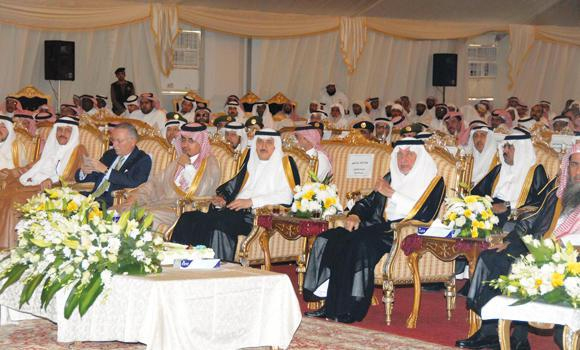
Jeddah, Mar 25: Makkah Gov. Prince Khaled Al-Faisal yesterday distributed free residency permits (iqamas) to the first applicants of the Burmese community in a historic move to legalize the status of nearly 500,000 refugees in the Kingdom.
“This is one of the beautiful moments in my life,” said Prince Khaled while addressing a ceremony at Kudai near Makkah. He thanked Custodian of the Two Holy Mosques King Abdullah for issuing his instructions to correct the residency status of a huge group of expatriates who have been living in the Kingdom for several years.
“It was one of the first proposals I presented to King Abdullah after becoming the governor of Makkah,” Prince Khaled said to the applause of the large gathering including OIC Secretary-General Ekmeleddin Ihsanoglu and Burmese community leaders. “King Abdullah ordered the formation of a ministerial committee for the development of disorganized residential districts in Makkah to improve the situation of Burmese Muslims living in those districts,” he said.
“This is one of the unique experiments in the world,” the governor said, adding that the Kingdom has taken drastic measures to tackle the problem. “We are not just building new homes to develop these districts. We also rehabilitate some 400,000 to 500,000 people living there,” he pointed out.
Prince Khaled said the government would provide Burmese community members with health care, social services, education and develop their residential areas as part of a comprehensive program. “We’ll also train them to get jobs,” he pointed out.
Under the Labor Ministry’s Nitaqat (naturalization) program, the employment of four Burmese is equal to one foreigner. This incentive was given to encourage private companies to employ more Burmese to meet their labor requirements. “You cannot see such a comprehensive rehabilitation program anywhere in the world,” the governor said.
“This is an unprecedented incident in the world,” said Mohammed Tayeb, director general of the Foreign Ministry’s office in the Makkah region, while commending the government’s efforts to issue four-year iqamas to Burmese citizens free of charge and provide them with educational, health and social services.
Mohammed Rauf Rafi, secretary-general of European Rohingya Council in the Kingdom, said there are about 350,000 Burmese Muslims in Makkah, Jeddah and Madinah. Saudi authorities intend to issue iqamas to all Burmese within four to six months. He disclosed plans to open a media center for the Rohingyas at the Organization of Islamic Cooperation.





Comments
Add new comment